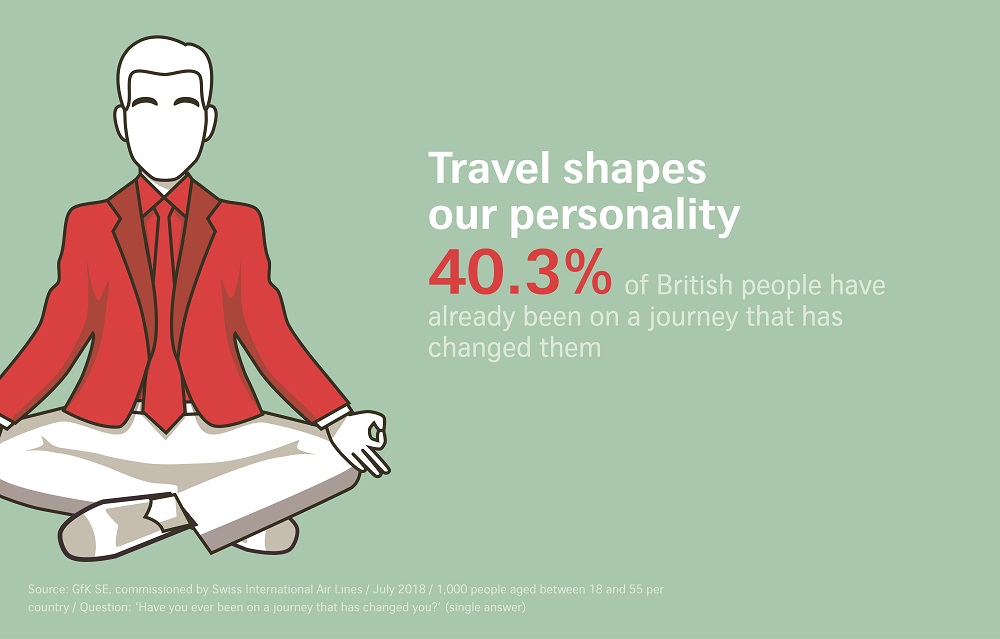
LONDON - With peak travel season over, all that's left of the summer holidays are our memories. The extent in which our travel experiences are embedded in our memories, how they differ from other memories and how they influence people were the subject of a GfK survey commissioned by Swiss International Air Lines (SWISS), who also consulted the renowned neuropsychologist Professor Lutz Jancke from the University of Zurich's Department of Psychology.
The new research reveals that travel memories are key when it comes to shaping our personality. More than 40% of Britons said that they have already been on a journey that has changed them, around 20% of British holidaymakers picked up a new hobby after travelling and nearly 15% started exercising after returning home.
"Travel and our travel memories have the power to shape our personality," explains Professor Jancke. "We are what we remember, or, more precisely - we are what we remember about ourselves," the scientist says. "The information stored in our memory spans the whole range of our personal experiences. Holiday and travel memories take a prioritised position within this realm of experiences, which is why they are major pillars of our personality."
In addition, more than 80% of British people wish they were able to relive a particularly happy travel experience and cherish their travel memories, with nearly 50% of those in the survey stating they would not delete their holiday photos for all the money in the world.
However, it seems that 67.3% of Britons record their travel memories using their mobile phone or camera because they are worried that they might otherwise forget them - thus trusting their smartphone more than their own memories.
"As a result of the intensive use of mobile phones, with constant access to the internet, it is becoming less and less necessary to retrieve information stored in our memories. This means that we start to lose trust in our own memory skills," explains Professor Lutz Jancke, who holds a chair in neuropsychology at the University of Zurich's Department of Psychology. He explained the science behind our travel memories for SWISS.
Travel memories last all our lives
"This scepticism towards our own ability to remember is unjustified, however," says Professor Jancke. "Our travel memories occupy a very special place in our memory. We often retain them all our lives. The reason for this is that holiday experiences are frequently associated with very positive emotions and are particularly deeply embedded in our memory. Freed from the worries and stress of everyday life, we are also able to absorb lots of little details when we are travelling - and they are the building blocks of our memories."
"This scepticism towards our own ability to remember is unjustified, however," says Professor Jancke. "Our travel memories occupy a very special place in our memory. We often retain them all our lives. The reason for this is that holiday experiences are frequently associated with very positive emotions and are particularly deeply embedded in our memory. Freed from the worries and stress of everyday life, we are also able to absorb lots of little details when we are travelling - and they are the building blocks of our memories."
These detailed travel memories are stored as a kind of multisensory mosaic comprising various sensory impressions, with nearly 65% of Brits stating that it's the images of their travels that they remember the best.
"Our sense of sight plays a key role because evolution has made us that way. Visual information is particularly important to humans and is prioritised in terms of processing," explains the neuropsychologist.
However, UK holidaymakers also remember the food tasted while away (53.21%), as well as the people (47.7%) and the smells they encountered (22.8%). And while sightseeing is often a major motivation for travelling, it's not the tourist attractions that generate the most vivid travel memories (49.9%) but instead spending time with family and friends (55.9%).
Tags:GfK